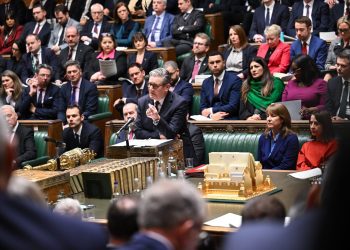Last week, the Home Office published its annual statistics detailing the number of scientific experiments involving animals which took place in 2024. As a longtime advocate of animal welfare, it is disappointing to see that despite decades of scientific progress, the figures show that 2.64 million procedures involving animals took place in 2024. This is just a 1.21% decrease compared to the previous year.
Britain has always prided itself on its strong record on animal welfare. Across parliament, there is a shared understanding that compassion and science are not opposing values, but partners in progress. However, these statistics highlight how much work still lies ahead to reduce and ultimately replace the use of animals in scientific research.
As an animal lover, I have been encouraged by the advances in human-specific research methods that are already transforming medical science. Techniques such as organ-on-chip models, 3D human tissue cultures and AI-assisted simulations are generating results that are not only more humane but also more relevant to patients. The future of British life sciences lies in these technologies and our job in parliament is to help drag that future closer to the present.
That is why I joined over 60 cross-party parliamentarians and public figures earlier this year in signing a letter calling for a defined timeline to phase out animal experiments, in line with the vision set out in Herbie’s Law.
This proposal, set out by charity Animal Free Research UK, would commit the government to a structured transition that would support scientists and see a phase out of animal experiments over the next decade.
This kind of ambition is what we need to see to ensure our regulatory systems reflect today’s scientific realities.
Currently, the scrutiny of animal experiment licenses remains far too limited. Between 1 January 2021 and 1 January 2025, only one license application to use animals was denied. And more than 3.8 million animals have been licensed for use in experiments since the start of 2025. If we are serious about ending animal experiments, the current licence approval process must be completely overhauled.
Moving away from animal experiments is about making scientific research work for everyone – for scientists, for animals and, crucially, for the British public. The United States has already begun to update its regulatory frameworks to reflect modern, non-animal technologies. The UK must prioritise doing the same and ensure we’re not left behind while other nations choose to progress with more humane science.
I firmly believe that this is an issue on which all parties can and should work together. We share the same goal: a more humane, effective, and world-leading research system. With compassion, collaboration and a clear timeline, we can achieve it.
If we get this right, Britain can once again set the global standard and prove that great science and the welfare of animals are not mutually exclusive. It’s time for all parties to work together to make that vision a reality; for people, for progress, and for the millions of animals who cannot speak for themselves.
Politics.co.uk is the UK’s leading digital-only political website. Subscribe to our daily newsletter for all the latest news and analysis.
The post Caroline Dinenage: ‘The future of science is animal-free – Britain must not be left behind’ appeared first on Politics.co.uk.
































